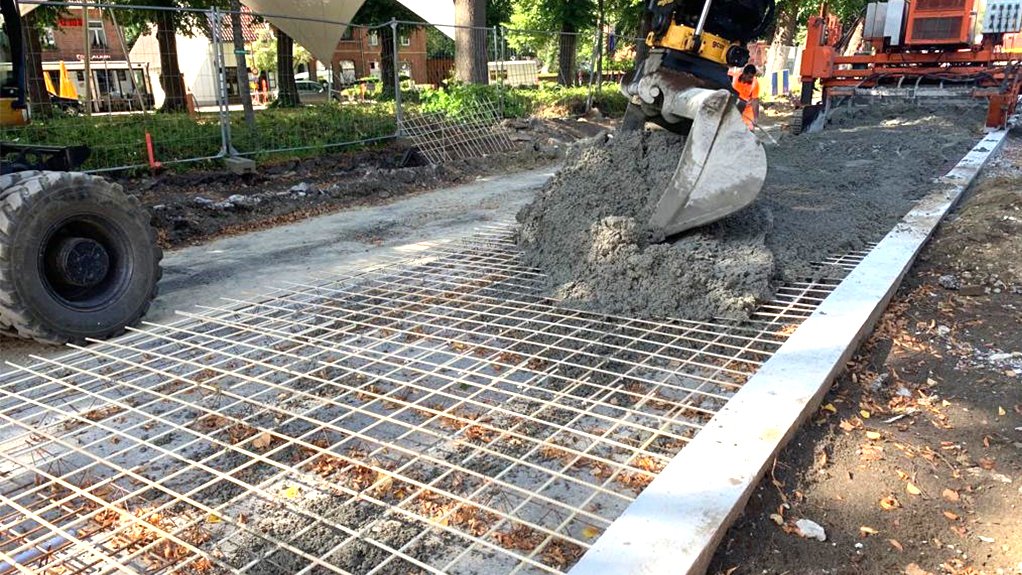Fibre composites are becoming increasingly popular as alternatives to steel reinforcements used in reinforced concrete in industries such as road construction, civil and commercial construction, hydro-engineering, and infrastructure facilities.
Glass fibre reinforced polymer (GFRP) products are said to offer several advantages over steel, including improved resistance to corrosion and an extended lifespan, making GFRP particularly suitable for a variety of applications in the construction industry, especially for use as reinforcing bar (rebar).
Market research organisation Research and Markets reported that the global Fibre Reinforced Polymer (FRP) rebar market is expected to grow from $215.88-million in 2021 to $421.02-million by 2028, noting that FRP rebars have several advantages over conventional steel, such as higher tensile strength and fatigue resistance, and lower creep deformation and unit weight. The main advantages over reinforcing steel rebars are said to be lightness, durability, mechanical performance and electromagnetic neutrality.
Armastek South Africa has recently been appointed as the sole distributor of Armastek GFRP in Southern Africa, having signed an exclusive distribution agreement with a foreign-based composite reinforcements manufacturer.
The company highlights the following advantages of its products:
- Lightweight and easy to handle (nine times lighter than steel)
- Suitable for a range of uses, including demanding applications
- High tensile strength (three times stronger than steel)
- Non-corrosive and resistant to chlorine ions, alkalis, and bacteria – leading to extended lifespan and durability
- Suitable for applications sensitive to electric or magnetic fields or that require thermal conductivity
Armastek further notes that its products help to reduce the amount of concrete cover and extend the life of the construction element, ensuring improved sustainability and reducing overall costs by up to 50%.
Applications of Armastek GFRP include:
- Precast concrete elements
- Road and rail infrastructure
- Buildings – both commercial and residential
- Tunnelling and civil engineering
- Water and marine
- Mining engineering
In addition, the use of GFRP products can help reduce the costs of civil engineering projects and low cost, affordable housing without compromising the quality of the finished products.
The company asserts that South Africa can benefit from expanding the use of GFRPs, with the rollout of a local GFRP manufacturing facility potentially helping to boost the country’s manufacturing sector, creating jobs, reducing the reliance on steel in the construction industry, and enhancing the use of environment-friendly materials.
EMAIL THIS ARTICLE SAVE THIS ARTICLE
To subscribe email subscriptions@creamermedia.co.za or click here
To advertise email advertising@creamermedia.co.za or click here













